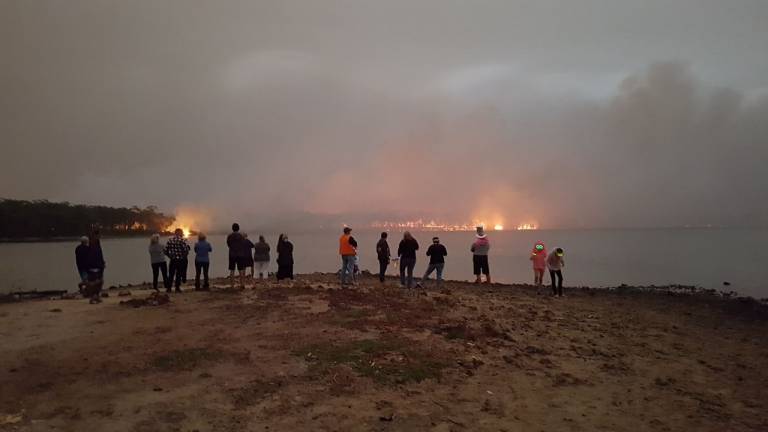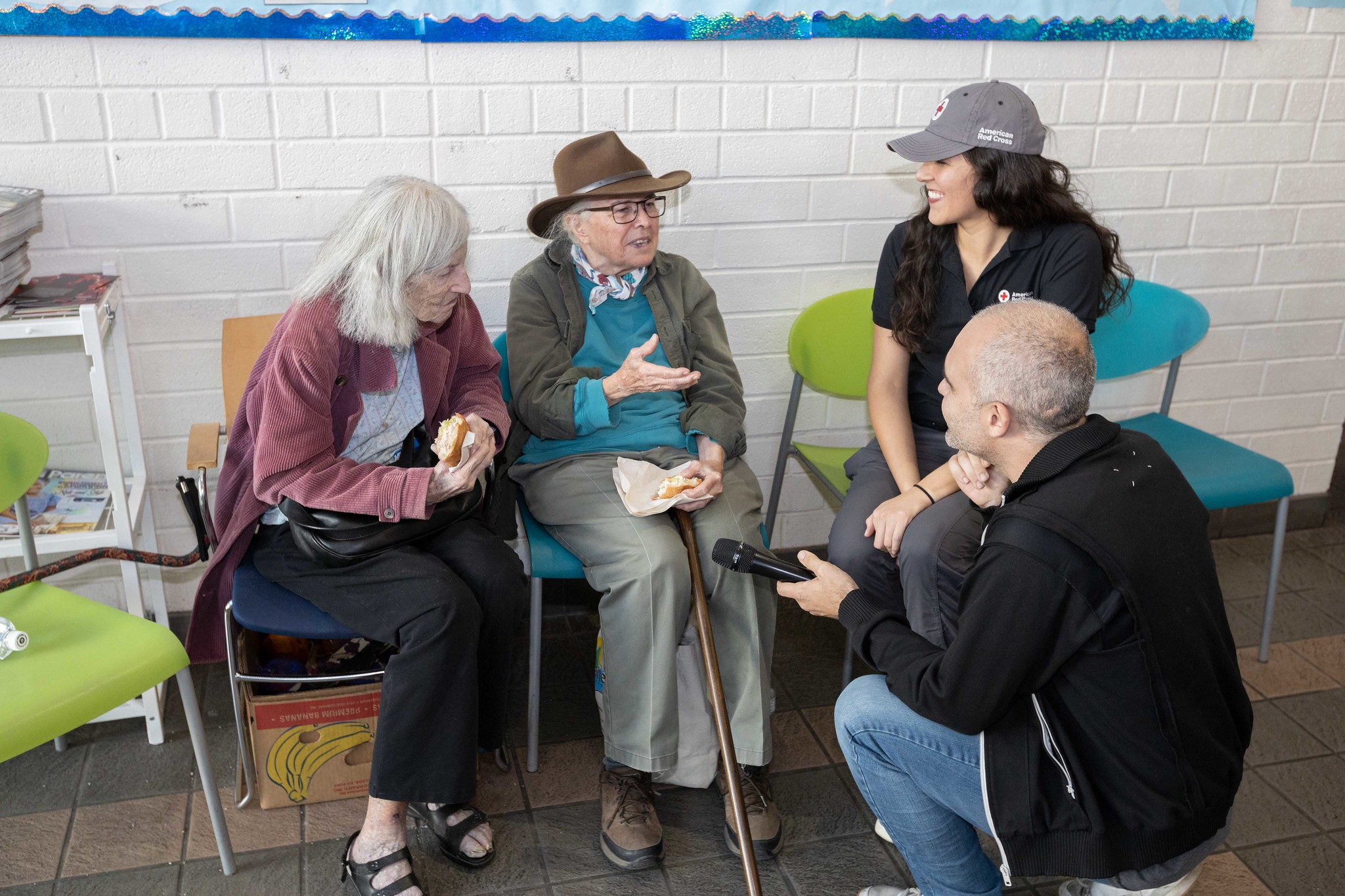By Helen Brooks, Red Cross Volunteer
“I love a sunburnt country,
A land of sweeping plains,
Of ragged mountain ranges,
Of droughts and flooding rains,
I love her far horizons,
I love her jewel-sea,
Her beauty and her terror –
The wide brown land for me!”
–Dorothea Mackellar
One could never have imagined the current situation Australia is facing today. Fires have devastated more than 12 million acres (and counting) of the beautiful land described in the one verse of Mackellar’s beloved poem. Her poem describes a love of country that is personal to each Australian.
Many of you have already seen pictures of Australia’s absolute devastation. Hopefully this resonates with each of you as you see the horror of this situation. The Australian people have suffered, and continue to suffer, not to mention the unique wildlife that have lost habitats and been killed, leaving a void. And the fires continue to burn.
This country has beautiful blue skies, pristine beaches, mountain ranges, iconic cities, but you certainly wouldn’t know that from skies over Sydney and other cities as smoke billowing from these fires reaches South America, and passes over New Zealand like a heavy cloud of destruction.
As an Australian, I can’t even begin to express the deep sadness I have knowing that this country will never be the same again in my lifetime, and while the outback and rural areas do come back from forest fires, not everything comes back. Koalas may become endangered as a result, and other flora and fauna have likely been wiped out.

My hope is that I am wrong, but academics are predicting a worst–case scenario. I find myself asking, ‘How long will it take to simply recover from all this?’ For some, recovery will not happen.
Sadly, lives have been lost, both those fighting the fires and those trying to escape them; property damage has destroyed livelihoods. If people were able to survive these fires, they have lost their ability to move forward beyond this point until the fires subside, and are ultimately stopped. Then it becomes their task to begin to rebuild.
Unfortunately, these fires still rage on and are nowhere near containment, and likely will not be for a while, especially as two of the largest fires recently merged to make a “mega fire.” As if things weren’t bad enough already.
Historic areas have been lost that provided a small perspective of what the past was like when living in Australia. Rebuilding from these horrific fires will be a huge undertaking, and some will not be able to rebuild. Some have lost it all. While they have their lives, I struggle to imagine what those lives will look like during the next few years.

While the Australian Red Cross has slightly different areas of concentration from the American Red Cross, one thing in common is their Mass Care response. They are there when people are faced with natural disasters, and simply when people need them. Many volunteers jumped into action in the rural areas of Australia and have once again proven they are the backbone of the organization, the people helping people.
Fire Statistics as of January 13
|
Lives Lost |
28 |
|
Wildlife Affected |
½ Billion |
|
Acres Burned |
17.9 Million |
Weather has played a major part in exacerbating these fires. Prior to the fires, Australia was suffering from a long drought, and had been dealing with unprecedented high temperatures brought on by climate change. Several cities broke back-to-back records with temperature levels.
Currently Australia has asked for international help in fighting these fires, and in the LA area, local firefighting personnel have already been deployed to areas in need of their expertise.
If you would like to support wildfire relief and the Australian Red Cross, learn more here.






Thank you Helen for explaining the effects of the fires. Our hearts are hurting. However, all of Australia as well as the world is coming together to help those affected.